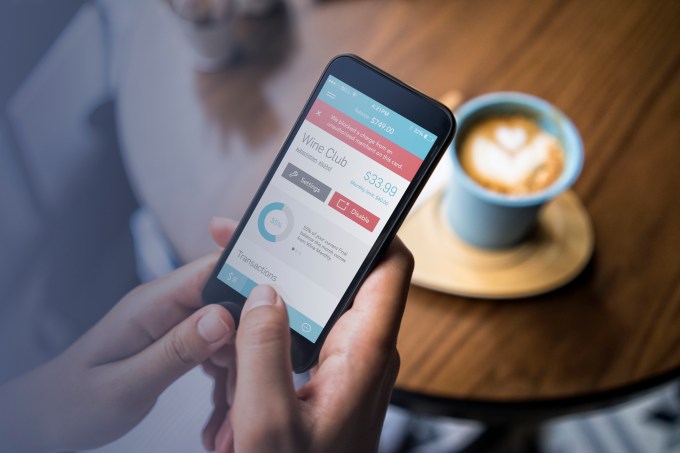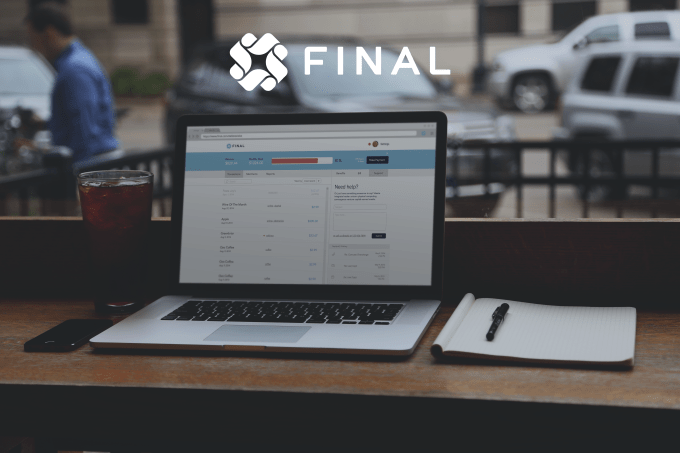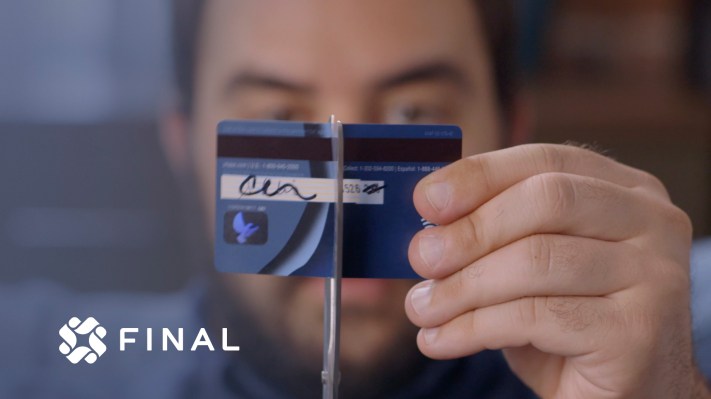Credit card startup Final, which is focused on combating fraud online and off while giving consumers more control over their spending, has raised $1 million in seed funding from investors including Ludlow Ventures, T5 Capital Partners, Y Combinator and other fintech angels, in advance of the launch of its 2015 pilot program.
The company tells us it already has 37,000 consumers signed up on the waitlist to try the new card when it becomes available.
Final was founded a year ago by a team whose background includes experience in I.T., mobile payments, and various startups, including Boulder-based Simple Energy.
Co-founders Aaron Frank, Matt Rothstein, and Andrew Dietrich say they first came up with the idea for a credit card that better protects against fraud after all becoming victims of the Target data breach in 2013.
“After we were all affected by the breach and all had our credit cards turned off suddenly, we thought there has to be a better system to improve this problem,” explains Frank. The goal with Final is to re-envision how consumers interact with their financial institutions, in a way that allows them to have more control over their payments and relationships with merchants and other service providers.

What the team came up with is an EMV (chip-and-PIN) based credit card which also offers consumers the ability to generate multiple, unique numbers that can be used with individual retailers. After signing up and receiving their Final card – a process which is similar to applying for any other credit card today – customers can then generate new card numbers using Final’s web app, browser plugin, or mobile application.
These numbers can either be used for one-time transactions, or as the new, unique card number for a single merchant. For example, Final customers could create a card number that works just for all their purchases on Amazon.com.
The ability to create unique, temporary credit card numbers is not a new idea, of course. The technology has been in development for some time, though several of its earlier adopters, including Discover and PayPal, have long since discontinued their programs. In the past, user adoption numbers for this technology was low – in part because consumers were perhaps not as aware of or proactive about fraud, but also because the technology for disposable numbers often required a browser plugin which put it out of reach of more mainstream or non-technical users.
Things have changed in the years since. Thanks to numerous data breaches at retailers including Home Depot, Staples, Neiman Marcus, Michael’s, PF Chang’s, Albertsons, JP Morgan Chase, Kmart, and more, consumers are now more interested in anti-fraud technologies and have a better understanding of how anti-fraud systems work, thanks to having their banks shut of their cards – sometimes seemingly randomly – as their activity triggers a red flag for deviating from their typical behavioral patterns.

Meanwhile, the U.S. is now finally transitioning to more secure chip-and-PIN infrastructure, which will help to combat the problem at point-of-sale. Final’s card will also ship as a chip-and-PIN card, to be more secure when used in a traditional manner.
More Control
But what makes it different from others that had offered temporary numbers in the past, is that they can be established for both individual merchants and one-off transactions. And then, thanks to the web and mobile applications, consumers can track their various accounts and subscriptions, setting specific rules for each.
Consumers could set dollar amount limits on one card number, for instance, or could cancel a specific card number in order to end a relationship with a merchant without affecting others. This system can also help in the event of a data breach.
“If you have a traditional card that’s breached at the point-of-sale, that one, static number is usable everywhere,” explains Rothstein. “If one of [Final’s unique] numbers is breached, it means that none of the other relationships will be affected.”

Pilot Program
The company says it’s in discussions with a number of financial institutions who may partner with Final on its card and technology, but things in the credit card industry, due to the regulatory environment there, may move a little slower than startups do. But they’re still hoping to launch a pilot program this year.
As far as their business model goes, Final says it will be pretty standard, taking a share of transactions and, at scale, a portion of that debt, but it’s not at the point of delving into the specifics of its fee structure. However, the team says their goal is not to be as “predatory” as others, thinking about ways to keep consumers informed about their financial health, and generally advocating for their customers.
The company is one of now several attempting to innovate in the credit card space, alongside universal, “connected” cards like Coin, Plastc, and Swyp, and other wallet technologies like LoopPay. But some of these companies haven’t fully worked out how they’ll handle the EMV transition, and others aren’t perhaps ready to take on the threat of ApplePay’s growing adoption.
Final may have some advantages, but could be limited by whether or not it’s able to establish the relationships it needs with financial institutions and the overall regulatory environment.
Consumers today can sign up on the company’s website to join the waiting list.
